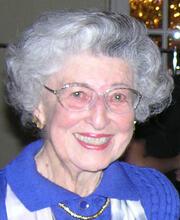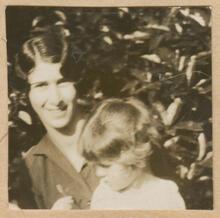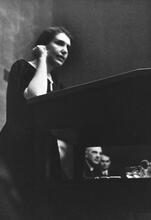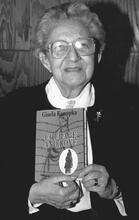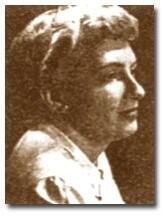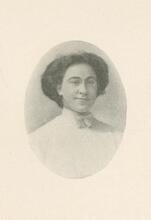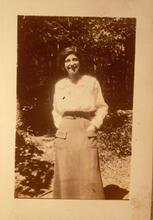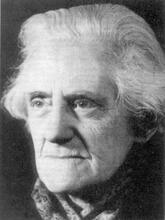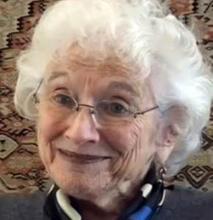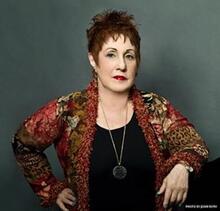Selma Fraiberg
Selma Fraiberg’s insightful work in infant psychology led to new ways to treat at-risk and “failure to thrive” infants and culminated in her classic book on parenting, The Magic Years. Fraiberg earned a degree in social work from Wayne State University in 1945 and published The Magic Years based on both her research as a social worker and her experiences as the stay-at-home mother of an adopted baby. In 1965 Fraiberg began teaching psychoanalysis at the University of Michigan, Ann Arbor, and created the Child Development Project to serve at-risk families and train clinicians. In 1979 she created an infant-parent program at San Francisco General Hospital, and in 1981 she received the Dolly Madison Award for her revolutionary work in the field of infant psychology.
Introduction
Selma Fraiberg was a psychoanalyst, author, and pioneer in the field of infant psychiatry. A woman and a social worker in a profession dominated by male physicians, Fraiberg rose to prominence because of her brilliance, originality, and dedication. She devoted her life to understanding the developmental needs of infants, to creating programs that promote infant mental health, and to reaching parents and policymakers through clear, persuasive prose.
Fraiberg accomplished enough in her life to fill three careers. She was a psychoanalyst specializing in the treatment of children. She wrote The Magic Years, a luminous account of the child mind that is a classic in its genre. Her early work with blind infants and their mothers produced techniques to promote bonding in the absence of visual cues. This work, culminating in Insights from the Blind, had major implications for sighted children as well. Fraiberg’s close observation of interactions between these mothers and babies elucidated the normal process of bonding and opened the way to working with babies at risk for neglect, abuse, or “failure to thrive.” During this last phase of her career, Fraiberg started the Child Development Project at the University of Michigan, which served troubled families, trained clinicians, and developed a treatment model that has been widely replicated.
Family and Education
Fraiberg was born Selma Horwitz on March 8, 1918, in Detroit, the first of three children of Jack and Dorella (Newman) Horwitz. Her father, the son of Russian Jewish immigrants, took over his father’s poultry business. On her mother’s side were Newmans, long established in Detroit, and Jacobses, Hungarian Jews who had come to the United States via England in the nineteenth century. The men were prosperous salesmen and retail merchants, active in community and synagogue. The women were housewives and mothers. The extended family was large and close knit.
Selma was feisty, shy, and intellectual. She had an especially close family relationship with her maternal grandmother, Jennie Jacobs, a strong-minded former suffragist who, like her granddaughter, was not in the family mold.
Selma was an undergraduate at Wayne State University in the class of 1940. She continued her education there at the social work school, where she met Louis Fraiberg, then a teaching assistant. They were married in 1945, the year of her graduation.
The Fraibergs’ life together was one of fruitful intellectual collaboration. He became a professor of English, teaching at Louisiana State University. He maintained a lifelong interest in psychoanalysis and social work and assisted his wife with several of her books.
In 1956, the Fraibergs adopted a baby girl, Lisa. Practicing what she preached, Fraiberg stayed home with Lisa and in her spare time wrote The Magic Years, which won the 1959 Book of the Year Award from the Child Study Association of America.
Academia and Legacy
For Selma Fraiberg, the years in Ann Arbor, Michigan, from 1965 to 1979, were the culmination of her life’s work. She was professor of psychoanalysis at the University of Michigan Medical School and director of the Child Development Project. She wrote, spoke, and traveled widely. She was known to colleagues and students as brilliant, demanding, fiercely principled, difficult, and inspiring. Those close to her knew that she was shy and self-conscious, and that public exposure caused her strain.
In 1979, the Fraibergs moved to San Francisco, where Selma Fraiberg organized and directed an infant-parent program at San Francisco General Hospital. In 1981, she received the Dolley Madison Award in recognition of her critical role in the field of infant mental health. In August of the same year, she learned that she had a malignant brain tumor.
Selma Fraiberg died on December 19, 1981, at age sixty-three.
Selected Works
Clinical Studies in Infant Mental Health: The First Year of Life, edited with Louis Fraiberg (1980).
Every Child’s Birthright: In Defense of Mothering (1977).
“Ghosts in the Nursery: A Psychoanalytic Approach to the Problems of Impaired Infant-Mother Relationships,” with Edna Adelson and Vivian Shapiro. Journal of the American Academy of Child Psychiatry 14 (1975).
Insights from the Blind: Comparative Studies of Blind and Sighted Infants, with Louis Fraiberg (1977).
Introduction to Assessment and Therapy of Disturbances in Infancy, editor (1989).
“Libidinal Object Constancy and Mental Representation.” Psychoanalytic Study of the Child 24 (1969).
The Magic Years: Understanding and Handling the Problems of Early Childhood (1959).
“Parallel and Divergent Patterns in Blind and Sighted Infants.” Psychoanalytic Study of the Child 23 (1968).
Selected Writings of Selma Fraiberg. Edited by Louis Fraiberg (1987).
“Smiling and Stranger Reaction in Blind Infants.” In Exceptional Infant, vol. 2, edited by J. Hellmuth (1971).
Anthony, E. James. “In Memoriam—Selma Fraiberg.” Frontiers of Infant Psychiatry, Vol. 12. Edited by Justin D. Call, Eleanor Galenson, and Robert L. Tyson (1984).
Coles, Robert, “Talk With Selma Fraiberg.” NYTimes Book Review, December 11, 1977.
Contemporary Authors (1981).
“Selma Fraiberg Dies at 63, an Authority on Early Childhood.” NYTimes, December 22, 1981.

